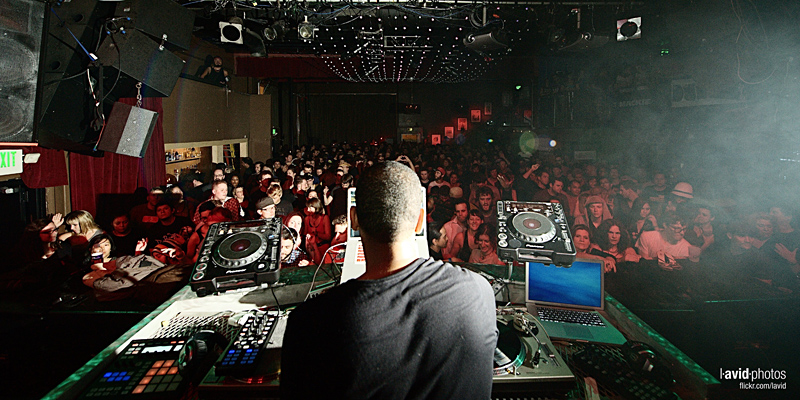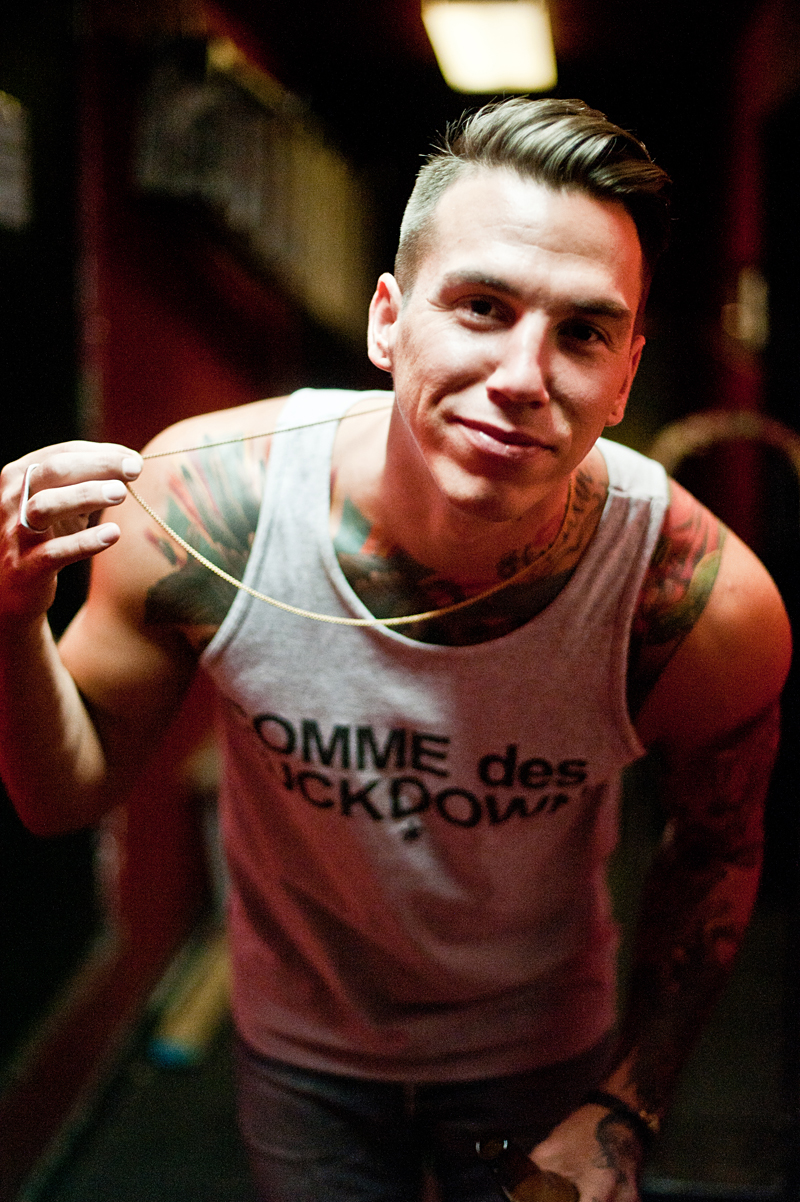Recently, a friend at local politics website PubliCola asked me to contribute to an essay series on how Seattle has changed over the years. I was busy and ultimately spaced on it (sorry, Josh), but I knew immediately what my answer would be: Seattle used to be a rock-‘n’-roll town. Now it’s something more diverse.
We all know the basic history. 20 years ago, Seattle was in the throes of its great grunge hype explosion, with Nirvana’s Nevermind bringing a flood of attention to what was then a relatively working-class, culturally isolated (though internally bustling) outpost. Even 10 years ago, Seattle was still primarily a rock city, with such high-profile exports as Modest Mouse, Murder City Devils, and the Blood Brothers.
Now the landscape is different: a genre-diverse metropolis whose hip-hop and electronic scenes are every bit the rivals of its historical rock roots. Seattle’s hip-hop scene is the most vibrant and thriving it’s been since Mix first rolled down Broadway, and, though typically lower-profile, its techno community is keeping pace with a small crop of local artists, labels, and club nights: the Sight Below, Lusine, Jon McMillion, Ill Cosby and his Car Crash Set label, From 0-1, SunTzu Sound and their TRUST monthly, and on and on. Nowhere, though, is this critical mass more apparent than in this month’s big last-gasp-of-summer music festivals, Bumbershoot and Decibel.
Now in its eighth year, Decibel has graduated from the homegrown, credit card–funded venture of DJ/musician/promoter Sean Horton to become one of a handful of truly world-class stops on the international electronic-music festival circuit, alongside such names as Montreal’s MUTEK, Barcelona’s Sonar, and the Detroit Electronic Music Festival. And this year, Decibel has partnered with Bumbershoot to bring its electronic expertise to the latter’s Sky Church stage at EMP by day and to the first-ever Bumbershoot After Dark by night. Bumbershoot has long booked diverse acts, from reggae and wo-pop to rock and hip-hop, and has hosted the occasional electronic acts—such as Donald Glaude and Jamie Lidell, as well as Decibel’s mini-showcase at the fest in 2006—but this partnership represents the most significant inclusion of electronic music in the festival’s history. In 2011, Seattle seems ready to rave (again).
“I firmly believe that Seattle is more receptive to electronic music in 2011 than it was 10 to 20 years ago,” says Horton.
Chris Porter, who has booked Bumbershoot since 1997, agrees. “I definitely feel it’s more receptive—the most, I’ve felt, since around 2002,” Porter said in an e-mail.
This shift lines up neatly with larger trends as well—not only in that if you go back more than 20 years, there was hardly any electronic music anywhere in the U.S. outside of early, influential developments in Detroit, Chicago, and NYC, but in that, as futurist as techno often makes itself out to be, it’s currently enjoying a bit of a nostalgic resurgence (evidenced by ’90s electronica crossover artist Moby headlining Decibel and Digital Hardcore vets Atari Teenage Riot hitting Bumbershoot).
“All genres of music go through an ebb and flow of popularity, and we’ve arguably seen that in the electronic-music world,” suggests Porter. “The genre has never gone away, of course, but the festival stopped devoting large chunks of programming time years ago to it when we saw attendance and interest dramatically drop off for it. But the last handful of years has seen such a growing buzz of interest [for DJs and live groups] and from a much wider demographic of interest.”
Of course, Seattle still has an inordinately high number of shaggy-haired rock and folk bands per capita, compared to a relative dearth of bald-headed DJ/producers. That puts Seattle at a crucial juncture: The audience for electronic music is here, and now it’s merely up to the city’s artists, labels, and promoters to keep up—and to give the monolithic Decibel some friendly competition.






